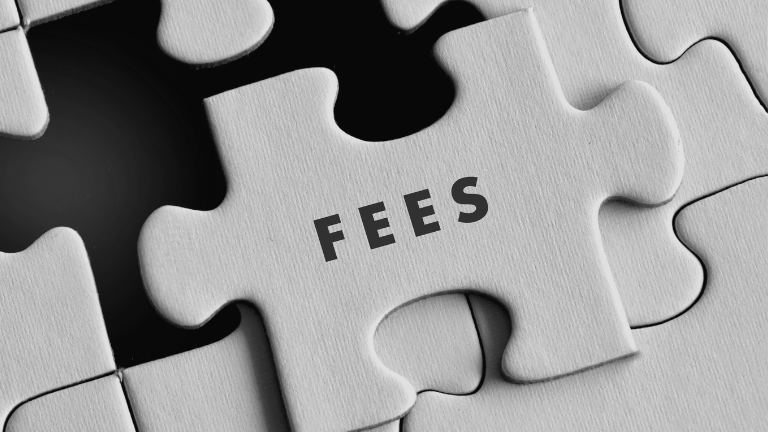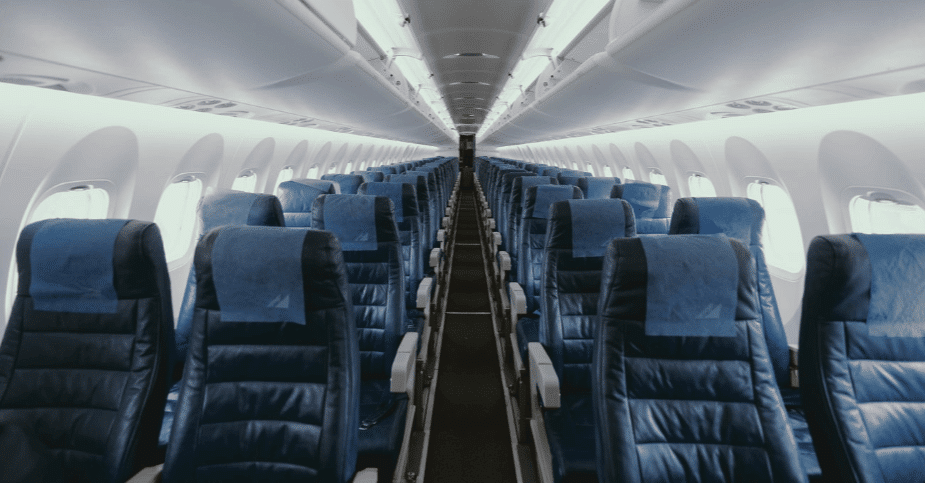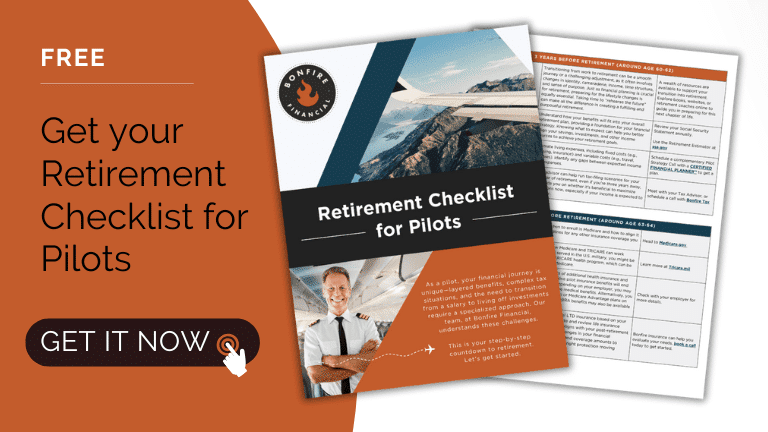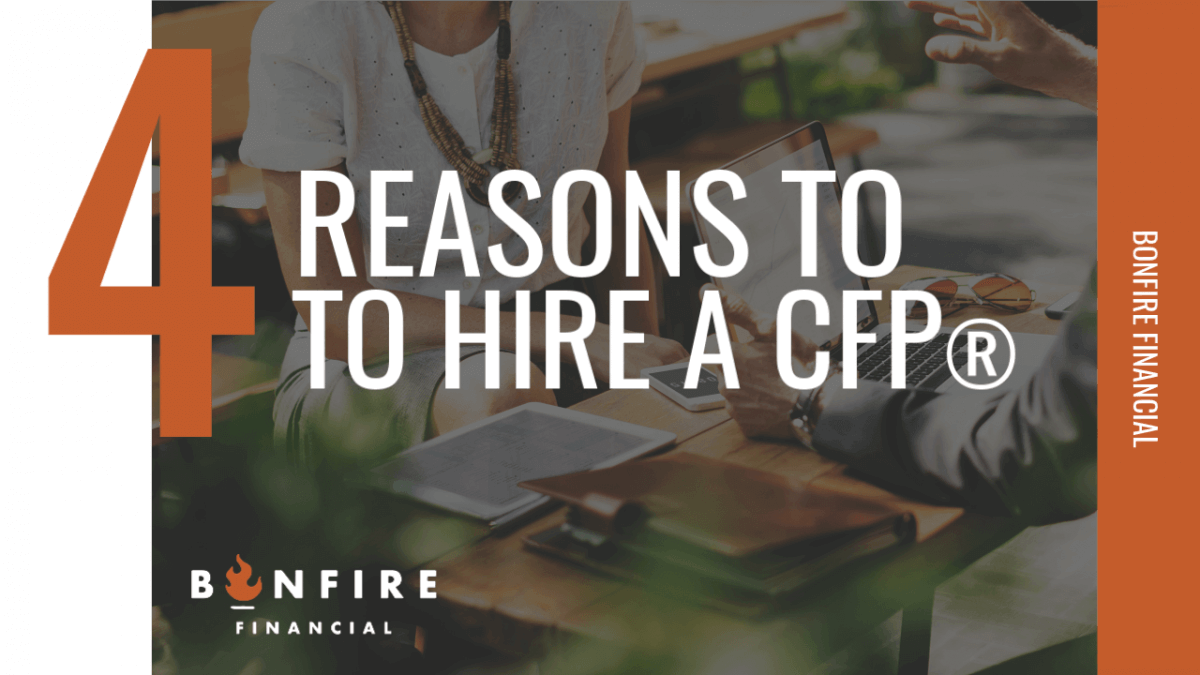The financial world has a jargon problem. It is filled with terminology that feels like it was designed to confuse people. And for decades, some parts of the industry preferred it that way. When clients do not fully understand how advisors get paid, it becomes easier for advisors to hide conflicts of interest, justify unnecessary expenses, or disguise sales incentives as financial guidance.
But there is one term that cuts through a huge amount of that confusion: fee only.
This single phrase tells you almost everything you need to know about the type of advice you are getting, the level of transparency you can expect, and whether your advisor is required to put your interests ahead of their own. At Bonfire Financial, we believe fee only advice is the future of the industry and the clearest path to an honest, trust centered financial relationship.
Today we are going to break down exactly what fee only means, how it compares to commission based advice, why the fiduciary standard matters, and how to protect yourself in a world where not all advisors are required to work in your best interest. Let us dive in.
Listen Now: iTunes | Spotify | iHeartRadio | Amazon Music
Why the Term “Fee Only” Matters More Than Most People Realize
Most people assume their financial advisor works for them. They believe the advice they receive is based on what is best for their financial future, not what is best for the advisor’s paycheck. But unfortunately, that is not always the case.
There are three main types of advisors:
-
Commission based advisors
-
Fee based advisors
-
Fee only advisors
These terms sound similar, but the differences are massive.
A commission based advisor gets paid when they sell something. It could be a mutual fund, an annuity, a life insurance policy, or even a stock transaction. Every recommendation is tied to a payout.
A fee based advisor is a mix of both. They can charge a fee and also collect commissions. This creates one of the most confusing and dangerous environments for clients because you never know which hat they are wearing when they give you advice.
A fee only advisor, which is what we are at Bonfire Financial, gets paid only by the client and only through a transparent fee arrangement. Fee only advisors cannot accept commissions on the products they recommend.
Why does this matter?
Because the way an advisor gets paid directly shapes the advice you receive. If someone makes money when you buy or sell a product, the incentives shift. Suddenly, the advice you receive might not be about what is best for you. It might be about what keeps their mortgage paid that month.
Fee only removes those conflicts. It creates a clean, transparent, and aligned relationship where your advisor only wins when you win.
How Commission Based Advice Became the Industry Norm
To understand why fee only matters, we have to look back at how the financial industry operated for decades.
Before financial planning became a profession, most advisors were essentially stockbrokers. Their job was to call clients and recommend trades.
- Buy this stock.
- Sell that fund.
- Switch into this new product.
Every single trade generated a commission. If an advisor could convince a client to buy something or sell something, they got paid. It did not matter whether the advice was good, bad, or neutral.
This created three dangerous realities:
1. Advisors could profit regardless of performance.
A client could lose money and the advisor could still get paid.
2. Advisors were incentivized to create activity even when unnecessary.
Buying and selling generated income. Holding did not.
3. Advisors could recommend expensive, high commission products even when cheaper, better solutions existed.
Clients rarely knew the difference.
This setup created a system where investors could not always trust whether a recommendation was truly for their benefit or simply profitable for the advisor.
And while the industry has evolved, this commission based model is still alive today.
The Suitability Standard vs the Fiduciary Standard
(Why You Should Care)
One of the biggest problems with commission based advice is the standard advisors are held to.
Commission based advisors follow the suitability standard.
Fee only fiduciaries follow the fiduciary standard.
Let us look at what that means.
The Suitability Standard: A Low Bar
Under suitability, an advisor only has to demonstrate that a recommended product is “suitable” for someone of your general profile.
For example:
-
You are 40
-
You make 150,000 dollars a year
-
You have moderate risk tolerance
If a product could be considered reasonable for someone in that demographic, it meets the suitability requirement.
The advisor does not have to choose the best option.
- They do not have to choose the cheapest option.
- They do not have to disclose conflicts.
- They do not have to put you first.
This is an incredibly low bar.
The Fiduciary Standard: A Higher Level of Care
Fee only Registered Investment Advisors (RIAs) are held to a true fiduciary standard.
This means:
-
They must act in your best interest.
-
They cannot put their compensation ahead of your outcome.
-
They must disclose conflicts.
-
They cannot sell commission based products.
-
They must recommend the best option available, not just a suitable one.
This is a completely different universe of advice.
The Hidden Conflicts Many Investors Never See
When someone can earn a commission, several conflicts appear whether they want them to or not.
Here are the biggest ones.
1. Advisors might recommend a product because it pays more.
Annuities, private REITs, insurance products, and certain mutual funds can pay commissions as high as 5 to 10 percent.
If two products accomplish the same goal but one pays a big commission, which one will a commission based advisor be tempted to recommend?
2. Advisors might encourage unnecessary trading.
If selling generates income, sales magically become more appealing.
3. Advisors might prioritize their own cash flow needs over your goals.
It might not be intentional.
It might not be malicious.
But it happens.
4. Advisors are not required to disclose these conflicts upfront.
Most people only discover these details buried in long documents filled with legal language.
This is the opposite of transparency.
The Power of Fee Only Advice
Fee only eliminates all of the above.
Here is what fee only advisors cannot do:
-
They cannot collect commissions.
-
They cannot be paid more for selling specific products.
-
They cannot hide compensation in product costs.
-
They cannot recommend something because it pays better.
What fee only advisors can do:
-
Charge a clear, transparent fee.
-
Put the client first.
-
Provide unbiased advice.
-
Focus on planning, not product sales.
-
Build long term relationships based on trust.
This is why fee only advice has become the gold standard among educated investors and why more people are seeking RIAs instead of commission based advisors.
How Fee Only Advisors Actually Get Paid
Fee only advisors typically charge one of three ways.
1. Hourly Fees
Like attorneys or accountants. Not our favorite model because clients often rush conversations or avoid asking questions.
2. Flat or Project Based Fees
Great for specific projects like financial plans, retirement strategies, or education planning.
3. AUM Fees (Assets Under Management)
A percentage of assets the advisor manages. For example, 1 percent per year on one million dollars equals ten thousand dollars annually.
This fee covers:
-
Portfolio management
-
Ongoing planning
-
Consultations
-
Strategy work
-
Adjustments
-
Support during major life changes
AUM fees align incentives because the advisor only grows their revenue when your portfolio grows. Your success becomes their success.
How to Know if an Advisor is Truly Fee Only
Sadly, many advisors use confusing language to appear fee only when they are not.
Here are five questions you should always ask:
1. Do you accept commissions of any kind?
The answer must be a clear, direct “no”.
2. Are you always acting as a fiduciary?
Not sometimes. Not only when convenient. Always.
3. Are you dually registered?
If yes, they can switch hats between fee only and commission.
4. How are you compensated?
They should be able to explain it in one clean sentence.
5. Can I see your Form ADV?
This document legally outlines how they get paid.
Any hesitation is a red flag.
Why Fee Only Protects Your Financial Future
Fee only advice is not just about fees.
It is about trust, transparency, and alignment.
When you choose a fee only fiduciary, you get:
-
Clear recommendations
-
No hidden agendas
-
Advice rooted in your best interests
-
More confidence in your long term plan
-
A healthier advisory relationship
Money is emotional. It is tied to your goals, your family, your future, and your security. You deserve an advisor who treats your financial life with the care and clarity it deserves.
Why Bonfire Financial Chose Fee Only
Bonfire Financial was built from the belief that clients deserve transparency, honesty, and unbiased advice. There should never be a moment where a client wonders:
“Are you recommending this because it helps me or because it pays you more?”
That question should not exist in a healthy advisory relationship.
By choosing the fee only RIA model, Bonfire Financial removed all product based compensation and all commission conflicts. When we sit across from a client, we can give clear, direct, transparent advice without worrying about how a product pays or whether a transaction generates revenue.
Fee only allows us to:
-
Dive deeper into planning
-
Spend more time understanding clients
-
Give unbiased recommendations
-
Build long term trust
-
Support families through major life events
-
Focus on what is best for you
This model creates what we consider the healthiest and most ethical advisor client relationship.
Final Thoughts: Fee Only Is the Standard Every Investor Deserves
The financial industry can be confusing, and that confusion often benefits advisors who profit from opacity. But you do not have to accept that. You can choose a relationship built on transparency and aligned incentives.
Fee only advice is not a marketing buzzword. It is a higher standard of care, a commitment to honesty and a structure that ensures your interests come first.
At Bonfire Financial, it is the only way we believe financial advising should work.
If you want to explore what fee only advice looks like for your family, schedule a call with us today to learn more.
Your financial future deserves clarity. Fee only gives you that clarity.
 Client Login
Client Login








